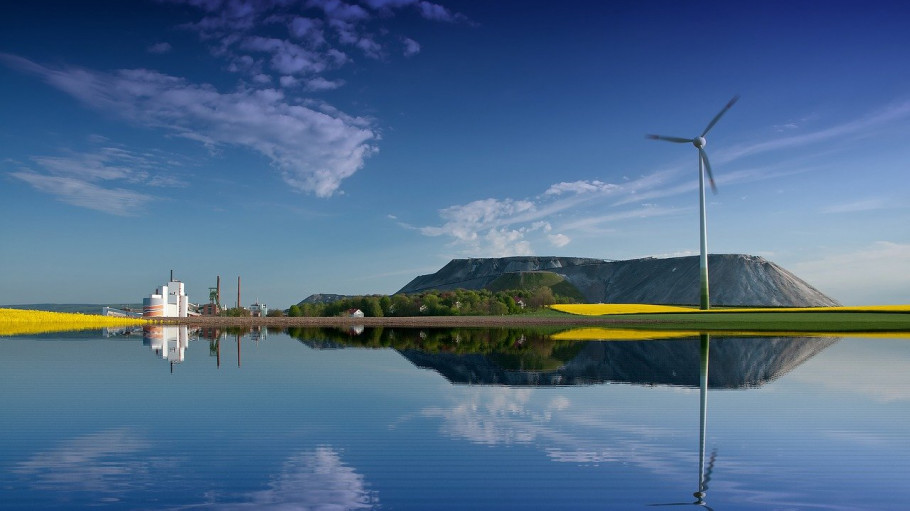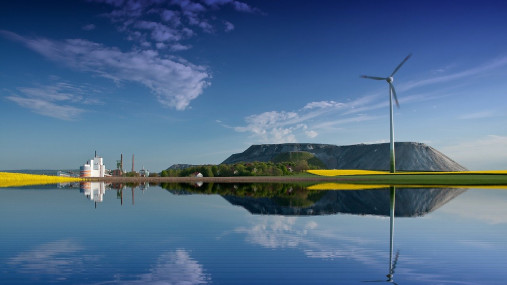
Press releases » State of the Union 2021: Green Deal must work for everybody, with right conditions in place to support steel’s decarbonisation
State of the Union 2021: Green Deal must work for everybody, with right conditions in place to support steel’s decarbonisation
Downloads and links
Recent updates

Brussels, 15 September 2021 – In her second State of the Union address, European Commission President Ursula von der Leyen set out the Green Deal as a major achievement and a cornerstone for the future of the EU. The steel industry is a world leader in decarbonisation and innovation, and has the ambition of reducing its emissions by 55% by 2030 compared to 1990. But it will be successful only if the Fit for 55 Package puts the right conditions and incentives in place.
“This is a make-or-break moment for Europe’s leadership, we must get it right in order to make the green transition economically and socially viable for everybody, including the steel sector”, said Axel Eggert, Director General of the European Steel Association (EUROFER). “The pandemic has shown that strategic autonomy is paramount in all industries: only with a steel sector in good health, can the EU pursue its geopolitical, climate, economic and social goals”.
The European steel industry calls on the EU legislators to ensure full support in the climate transition by providing:
- access to affordable low carbon energy, especially electricity and hydrogen;
- investment support for breakthrough, clean technologies;
- effective carbon leakage protection. The new Carbon Border Adjustment Mechanism (CBAM) should be applied until 2030 with the EU ETS currently used benchmark-based free allocation and indirect cost compensations throughout the EU, in order to support companies focussing on low carbon investment and also in order to assess the CBAM effectiveness over time.
The implementation process of the Fit for 55 package on the ground will be equally important: overly burdensome regulations further worsening the regulatory cost disadvantage of EU companies vis-à-vis its global competitors could jeopardise manufacturing in Europe with preventable plant closures and job losses in the thousands in the steel industry alone. Higher climate ambition and rising carbon prices - which doubled in the last year and tripled in the last two years - require strengthened carbon leakage protection as long as international competition doesn’t face comparable carbon constraints, if any at all.
“Steel has been at the heart of the European community since its very foundations in 1950 with the Schuman Declaration. Today, decarbonisation is both a reality and a necessity. We should not put European steel at risk by mistake or as an unintended collateral damage of other policies, as this could put the State of Union itself at risk in the coming years”, warned Mr Eggert. “Instead, the EU should embrace the opportunity of a steel industry that could be the global decarbonisation leader. We therefore reiterate our call on President von der Leyen to meet the CEOs of the EU steel industry for a ‘European Green Deal on Steel’”.
Contact
Lucia Sali, Spokesperson and Head of Communications, +32 2 738 79 35, (l.sali@eurofer.eu)
About the European Steel Association (EUROFER)
EUROFER AISBL is located in Brussels and was founded in 1976. It represents the entirety of steel production in the European Union. EUROFER members are steel companies and national steel federations throughout the EU. The major steel companies and national steel federation of Turkey and the United Kingdom are associate members.
The European Steel Association is recorded in the EU transparency register: 93038071152-83.
About the European steel industry
The European steel industry is a world leader in innovation and environmental sustainability. It has a turnover of around €170 billion and directly employs 330,000 highly-skilled people, producing on average 160 million tonnes of steel per year. More than 500 steel production sites across 22 EU Member States provide direct and indirect employment to millions more European citizens. Closely integrated with Europe’s manufacturing and construction industries, steel is the backbone for development, growth and employment in Europe.
Steel is the most versatile industrial material in the world. The thousands of different grades and types of steel developed by the industry make the modern world possible. Steel is 100% recyclable and therefore is a fundamental part of the circular economy. As a basic engineering material, steel is also an essential factor in the development and deployment of innovative, CO2-mitigating technologies, improving resource efficiency and fostering sustainable development in Europe.

Download files or visit links related to this content
Letter to Commission President von der Leyen and Executive Vice-President Sejourne'
Brussels, 27 November 2024 – The European steel industry is at a critical juncture, facing irreversible decline unless the EU and Member States take immediate action to secure its future and green transition. Despite repeated warnings from the sector, the EU leadership and governments have yet to implement decisive measures to preserve manufacturing and allow green investments across Europe. Recent massive production cuts and closure announcements by European steelmakers show that time has run out. A robust European Steel Action Plan under an EU Clean Industrial Deal cannot wait or manufacturing value chains across Europe will simply vanish, warns the European Steel Association.
Brussels, 12 November 2024 - Ahead of Commissioner-Designate Séjourné’s hearing in the European Parliament, European steel social partners, supported by cross-party MEPs, jointly call for an EU Steel Action Plan to restore steel’s competitiveness, and save its green transition as well as steelworkers’ jobs across Europe.